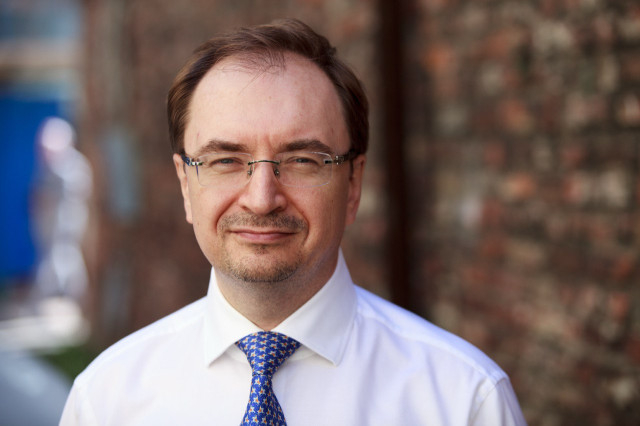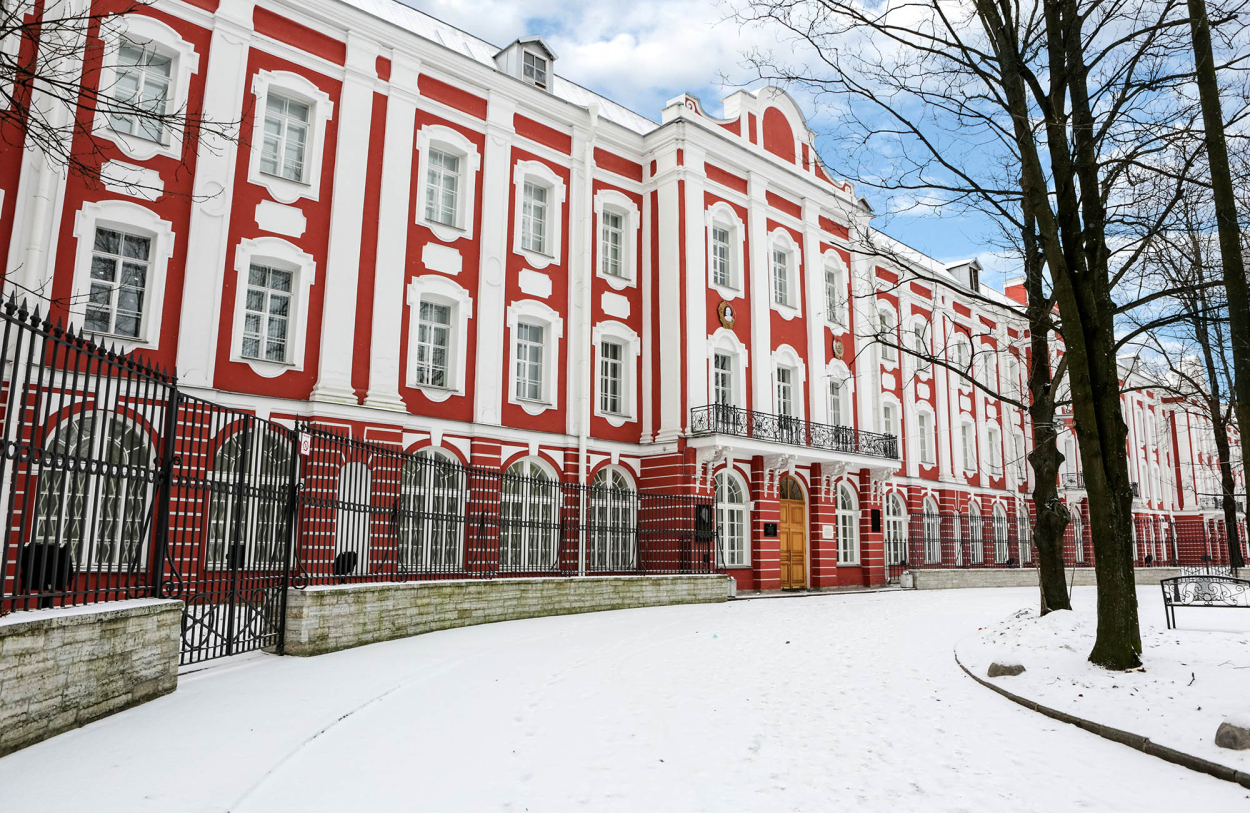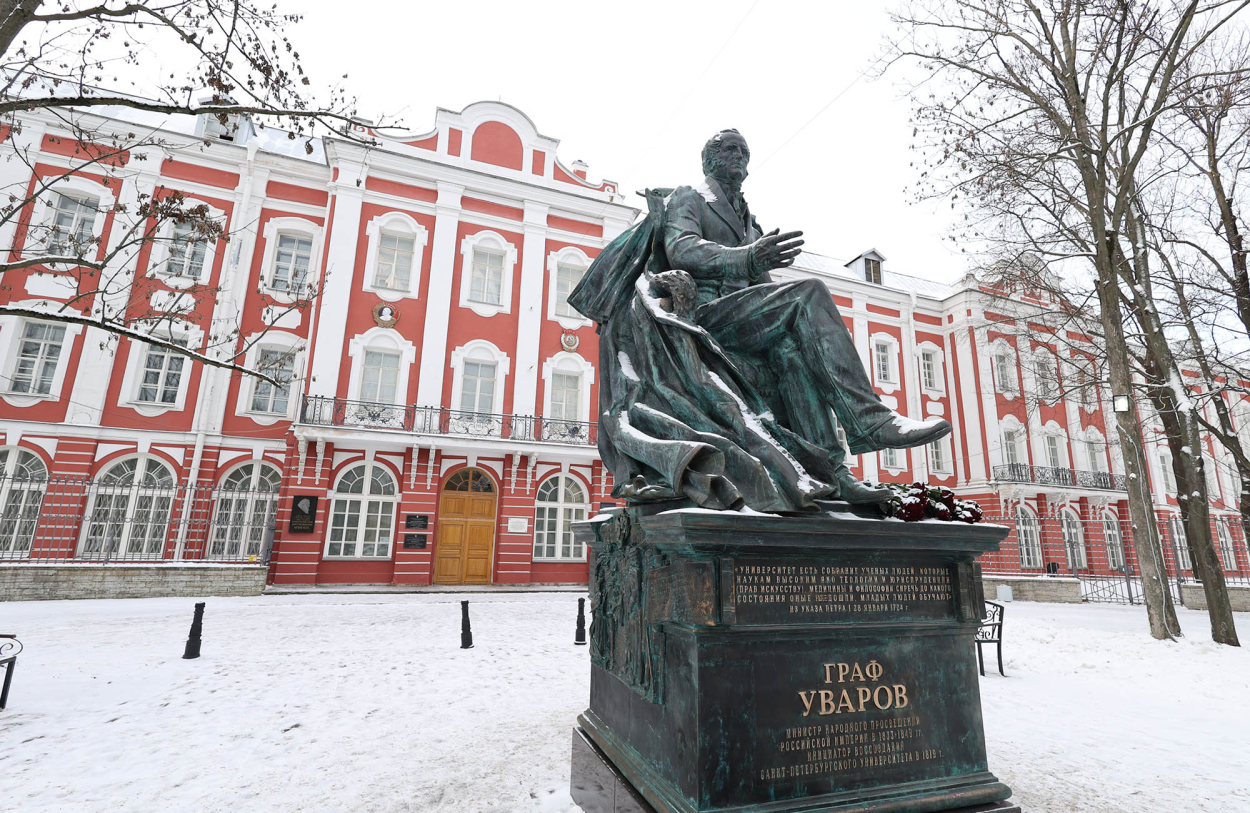RBC: "Rector’s Course": Nikolay Kropachev on the special status of St Petersburg University

In an interview to RBC TV South, Rector of St Petersburg University Nikolay Kropachev spoke about the clinical approach to education. He also answered questions about how St Petersburg University collaborates with Russian and international business partners and their involvement in the teaching and learning process at the University, and the competition for admission to study at St Petersburg University.
The editorial boards of RBC South and Delovaya Gazeta. South, in collaboration with the media partner "Universities. RF", have launched a joint project called ‘Rector’s Course’. The project features a series of TV interviews with rectors of Russia’s leading universities, who discuss their interactions with businesses and the implementation of federal projects. Nikolay Kropachev, Rector of St Petersburg University, became the guest of the latest episode. He was interviewed by Aleksandra Tishkova, a student in the International Journalism programme at the University and an intern at the St Petersburg University Clinic of Communication Projects.
"21,000 applications from prospective students across 140 countries have been received for government-funded places at St Petersburg University"
Professor Kropachev, this year St Petersburg University marked its 301st anniversary. How has the University maintained its position as one of the top academic institutions not only in Russia but also globally for over three centuries?
Since its establishment in 1724, the University has played a key role in addressing the most pressing issues facing the state, and we continue to follow this course today. St Petersburg University has a special legal status defined by a special federal law. Only two universities in Russia hold this status: St Petersburg University and Moscow State University. This special status allows the University to teach according to its own educational standards and conduct dissertation defences for Candidate and Doctor of Sciences degrees following its own rules. And since these rules are rigorous, the defences are held to a higher standard.
St Petersburg University has the right to hold competitions for academic staff positions according to its own rules. This ensures that we attract not only the best students but also the best lecturers. We maintain strong ties with our graduates, who are highly sought after and successful in the job market. Our graduates work at leading companies and in public administration. Nine Nobel laureates and two Fields Prize winners have studied and worked at the University. Many of our graduates have become prominent figures in science, culture, and the arts. This is, indeed, a significant competitive advantage.
The special project "Rector’s Course" aims to inform the business community, industry representatives, and young audiences about the potential and opportunities that universities offer in addressing personnel challenges and ensuring the technological sovereignty of the country.
The project also aims to engage young people in business and science journalism. It is implemented in collaboration with graduates of the Mediaskills School of Anomic Communications, organised by the Electric Power Division of Rosatom State Corporation (Rosenergoatom Concern), with the participation of the Information Centre for Nuclear Energy network and the Business I Tochka Media Group.
Multimedia content is released simultaneously across several platforms, including RBC South, Delovaya Gazeta South, and Universities. RF.
This year, the University received a record number of applications: over 110,000. However, it is important to clarify that this large number of applicants wanted to study on a wide range of programmes implemented at St Petersburg University. Not all of them became our students: we select the best of the best candidates through a competitive process.

Over the past 5-6 years, the University has become increasingly popular among international applicants. Which countries do these applicants come from?
The University has received applications from 140 countries across the globe. Every year, we admit approximately 1,000 students on government-funded places and 1,000 on a fee-paying basis. The competition for government-funded places among international applicants is quite intense, with 21 applicants per place. Just imagine: about 21,000 applications for just 1,000 government-funded places from 140 countries worldwide. For fee-paying places, there is also a significant competition, with five applications per place. This means approximately 5,000 applicants from 90 countries are vying for 1,000 fee-paying spots. What other higher education institution in the Russian Federation has such strong competition and attracts applicants from such a range of countries?
We are proud that throughout its history, the University has been popular among students. We value our rich history and diligently preserve the traditions that have shaped St Petersburg University. At the same time, we embrace the innovations we have introduced over the years and continue to implement today. It is this union of tradition and innovation that fosters the employability of our graduates who are highly sought after in the labour market.
Close cooperation with business partners plays a key role in this process. St Petersburg University was the first in Russia to actively engage employers in the teaching and learning process. Today, councils of academic programmes include representatives of employers who diligently update curricula and professional training programmes. They help us to enhance and align research areas and topics of student graduation projects with the current demands of the state and business.
Differences between a corporate university and a classical university
At the moment, how many business partners does St Petersburg University have?
Currently, we closely collaborate with approximately 1,100 companies.
Wouldn’t such close employer engagement in the teaching and learning process transform the University into a corporate training institution?
No, it wouldn’t. I mean, comparing corporate universities with a classical university like ours reveals significant differences. The primary goal of a corporate university is to train specialists for its own corporation. Corporations, indeed, can be large entities like Gazprom, Sberbank, or VTB. Still, graduates of corporate universities are trained to meet the needs of the parent corporation. In contrast, as a classical university, we educate students to work anywhere and everywhere. The skills and competences our graduates acquire open up nearly limitless opportunities for them.

"Clinics"
You have mentioned that St Petersburg University was among the first in Russia to involve employers in the development of academic programmes. Notably, in 1996, you initiated the clinical approach to education at St Petersburg University. Could you please share the outcomes of the clinical approach initiative in the course of development of our education system? Also, why is it referred to as "clinic"?
We began involving practitioners in the teaching and learning process at the University at the Faculty of Law in the late 1990s. By 2014-2016, this practice had become standard, with employer representatives participating in final exams committees. Essentially, law students’ graduation examinations were conducted by employers as early as the end of the last century. This practice significantly impacted students’ grades, their attitude toward the teaching and learning process, and their qualification levels. Many of the legal practitioners who served on the State Examination Committees later sought to work, teach, and contribute to the University.
As for the word "clinic", this fundamentally new approach to education was introduced at St Petersburg University at the end of the last century. The first educational clinic at the Faculty of Law was short-lived, lasting only for about two years. At that time, few professors supported this format due to concerns about responsibility for the legal advice provided by students. Nevertheless, the clinical approach proved to be effective and has been implemented at St Petersburg University for over a quarter of a century.
The clinical approach enables students to gain unique, first-hand experience collaborating with employers and solving real-life issues for the University’s partners. This helps students develop professional competences and skills while still studying at the University. As a result, many student interns receive job offers even before graduating, which further confirms their high qualifications.
This approach is inspired by the traditional clinical education for medical practitioners, but we apply this format not only to medicine, but to many other fields of knowledge as well.
Over the course of its long history, St Petersburg University has undergone numerous reforms. In 2022, the Russian Federation decided to withdraw from the Bologna system of education. Valery Falkov, then Head of the Ministry of Science and Higher Education, began talking about implementing a new system in higher education by 2026. What changes in the structure of Russian education system, do you believe, are most needed today?
You know, for some reason, when discussing changes in higher education, people often focus on the duration of university education, its stages, and the names of academic programmes, but that is not the point. They overlook the main issue, namely, the content of the education itself, because the quality of education depends on what is taught. Firstly, it is crucial that we determine whether the content meets today’s demands. Secondly, we have to assess how well students can engage with and master the material taught, rather than merely gaining superficial familiarity with it.
The duration of education is therefore not the key factor. Indeed, some individuals require more time to learn, while others may struggle regardless of the time and teacher’s effort invested. The crucial aspects are the content of the teaching and learning process and the quality of education. If a university lacks a well-developed learning materials and infrastructure, if its library is inadequate, especially regarding the humanities, but not only them, if its academic staff is underqualified, the duration of education becomes irrelevant. Without these essential components, education will not be effective.
A university degree is valued if the university graduates are valued. To achieve this, openness and transparency are essential. For instance, when we invite employers to join the councils of academic programmes, we aim to ensure both transparency and employer engagement in the teaching and learning process. However, we decided to take this a step further with a simple yet effective approach. Every degree certificate from St Petersburg University includes a QR code. This code enables employers to visit the University’s website and see — what do you think? Your photo? No, the employer will see you in person anyway. They will have access to detailed information about your studies. This includes not just your grades for certain disciplines, but also professors who delivered you lectures and conducted seminars, your examiners and examination results, including whether examinations were passed on the first attempt, they will even be able to read your term papers and graduation project, along with the reviews.
"I can hardly keep up with the University"
Our project is called ‘Rector’s Course’. What is your chosen course, Professor Kropachev?
My course is to move forward together St Petersburg University. Indeed, I can hardly keep up with it, that is for sure. With its 300-year history, our University has always looked to the future. This forward-thinking approach is what makes it interesting and only then people enjoy studying and working here. Today, St Petersburg University is at the forefront of new digital technologies, interactive platforms, medical innovations, and research topics that are relevant not just for today, but for tomorrow. We teach ambitious and talented students, thus ensuring that our country has a bright future. St Petersburg University represents 300 years of both tradition and innovation, and it will continue to do so!
Flash interview
Is science a popular field?
In our country, science is, indeed, popular.
How much will scholars be paid in five to ten years?
At St Petersburg University, we have outstanding scholars, and, believe me, they are not complaining about their salaries. Many of them earn more than university rectors, and I am pleased about that. An excellent scholar will always be in demand!
Where should I enrol to have employers pursuing me in five years?
Choose any of the over 500 academic programmes offered at St Petersburg University.
Will neural networks surpass humans?
Neural networks can enhance the quality and efficiency of our work, but they cannot replace humans.
Do you believe that scientific discoveries can be made in the regions of Russia?
We have strong research institutions across our country.
What qualities should a student possess?
A student should definitely be curious, appreciative of their teachers, and have a love for their homeland.
Were you an A-student?
No, I was not an A-student.
Did you think you would become a rector? Is it difficult?
I never thought I would be a rector. It is incredibly challenging but also very interesting.
Who was your teacher?
Professor Vadim Prokhorov was my first teacher and supervised my graduation project. He taught me to argue, defend my position, and not be afraid to debate.
How can one find a mentor?
Enrol at St Petersburg University, and you will find a mentor.

